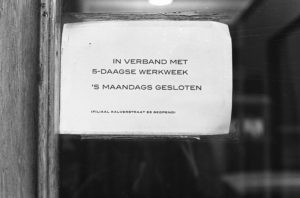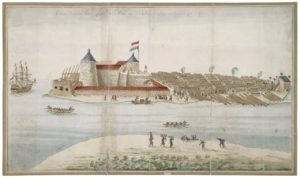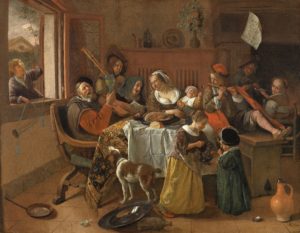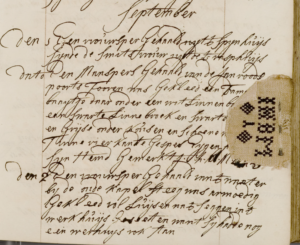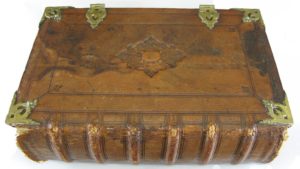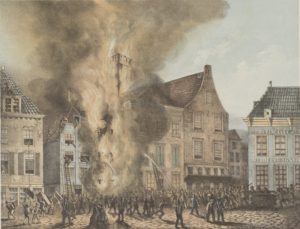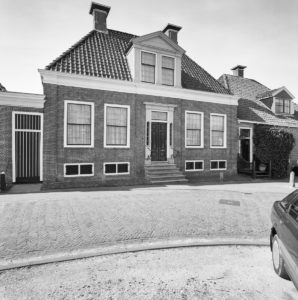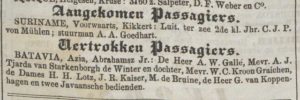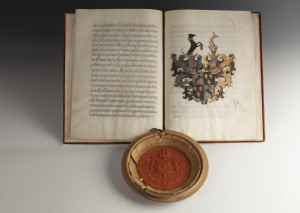Maandag is the Dutch word for Monday. It is also a (rare) family name. … [Read more...]
Dutch term – Slavenhandel
Slavenhandel is the slave trade. The Dutch West India Company was heavily involved in transporting slaves. They had an outpost in Elmina on Africa's Gold Coast, where they gathered the enslaved people bought or captured in Africa. Ships would sail from Amsterdam with merchandise to buy slaves on the local slave markets in Africa, from where they would bring them to the West Indies or New Netherland. On the way back, the ships brought the proceeds from the colonies, such as sugar, tobacco, and … [Read more...]
Dutch term – Gezin
A gezin is a nuclear family, consisting of a couple and their children. Other family members who lived in the same household can be considered part of the gezin too. … [Read more...]
Dutch term – Haaldode
A haaldode is a dead person that was retrieved. I have only ever seen the word used in Amsterdam records, but it may have been used elsewhere as well. In Amsterdam, a lot of people were living in poverty by the end of the 1700s. People died in the streets or drowned in the canals. Their bodies were retrieved and brought for inspection to a hospital at the Overtoom. They were recorded in a special register of haaldoden. If their identity was unknown, the record would include a description of … [Read more...]
Dutch term – Familiebijbel
A familiebijbel is a family bible. Some Dutch families recorded births, marriages, and deaths in their bibles. Familiebijbels were not as common in the Netherlands as they were in other parts of the world. Until the 1900s, a large part of the population was illiterate and only richer people were able to create their own records. You rarely see family bibles cited in Dutch genealogical publications. The records kept by the churches and civil registration are readily available, include the … [Read more...]
Dutch term – Brand
Brand is the Dutch word for "fire." Fire was a major threat to any town. Fires effect the available records. The obvious connection is that some records are destroyed by fires. Examples are Enschede town records prior to 1862 and Varsseveld town and church records prior to 1723. Fires or the threat of fire can also create records: Lists of houses that burned Lists of victims who died Lists of people who had fire buckets (the original "bucket lists") or ladders Records of … [Read more...]
Dutch term – Innocent
Innocent literally means "innocent." It is a term used in older Dutch records to refer to somebody who had a mental disability or who had severe dementia. You may encounter the term in a will, for instance, if the parent wanted to provide for a child with disabilities or in a hospital record describing an elderly patient's mental condition. Read researching relatives with disabilities for more information. … [Read more...]
Dutch term – Vredegerecht
The Vredegerecht (sometimes spelled vredegeregt) is the Peace Court or Justice of the Peace. The system of vredegerechten was introduced during the French occupation and lasted from 1811 to 1838. The Vredegerecht held the lower jurisdiction in a canton, a district roughly the size of one or a few municipalities. After 1838, the vredegerechten were renamed to kantongerechten. In Belgium, these courts are still called vredegerechten. The vredegerechten only had the jurisdiction over … [Read more...]
Dutch term – Passagierslijst
A passagierslijst is a passenger list. Most passenger lists are kept in the country of arrival. Passenger lists for people who emigrated from the Netherlands to another country, are rarely found in the Netherlands. But the passenger lists of people who travelled to the Netherlands may be found in Dutch archives. The Stadsarchief Rotterdam [Rotterdam City Archives] has the largest collection of passenger lists, including those of the Holland Amerika Lijn and the Koninklijke Lloyd. Passenger … [Read more...]
Dutch term – Familiearchief
A familiearchief is an archive created by a family. The records in a family archive can relate to personal, business, or government affairs and were often formed by several generations. Many familiearchieven are still in the possession of the family, while others have been turned over to an archival institution. The website Archieven.nl has finding aids for many familiearchieven that are in public facilities. … [Read more...]
